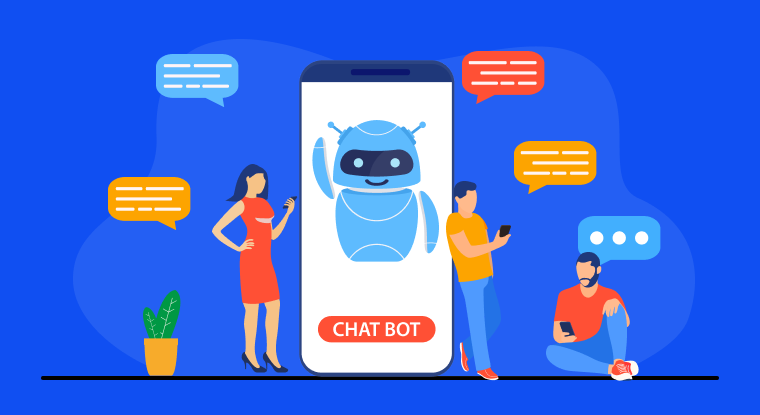AI chatbot creation tools are essential to the transformation of brand communication, service, and marketing as companies continue to embrace automation. By 2025, chatbots have evolved from simple support bots to conversational, intelligent agents that understand context, provide responses that resemble those of a human, and mix in seamlessly with business processes.
Selecting the best AI chatbot creation tool is essential, regardless of whether you’re a company introducing your first bot or an organization improving digital assistance. A genuinely customized customer experience, cost savings, and faster deployment are all possible with the correct platform.
In this blog, we’ll explore 7 essential AI chatbot development tools that are defining the future of conversational AI in 2025.
1. Dialogflow (by Google Cloud)
Best for: Voice-enabled and multilingual chatbots
One of the most effective AI chatbot-building tools available is Dialogflow. It enables speech and text-based conversations and is supported by Google’s infrastructure and NLP expertise, enabling companies to create bots for websites, apps, and smart devices.
Key Features:
- Advanced natural language understanding (NLU)
- Prebuilt agents and intent templates
- Google Assistant and telephony integration
- Supports over 20 languages
Use Cases: Customer support, e-commerce, virtual assistants, voice bots
2. Microsoft Bot Framework
Best for: Enterprise-grade bots with deep system integration
Microsoft’s Bot Framework enables developers to build sophisticated AI bots that integrate with Microsoft Azure, Teams, Dynamics 365, and other enterprise tools. It’s ideal for organizations already embedded in the Microsoft ecosystem.
Key Features:
- Integration with Azure AI services (Language Understanding, QnA Maker)
- Omnichannel bot deployment (Web, Skype, Slack, Teams)
- Rich SDKs for .NET and JavaScript
- Powerful developer tools and analytics
Use Cases: Enterprise support, HR automation, IT helpdesk, healthcare
3. Rasa
Best for: Open-source, highly customizable chatbot development
Rasa is an open-source chatbot development framework that gives developers full control over chatbot behavior, training data, and deployment. It’s perfect for teams that require full flexibility and want to host bots on-premise.
Key Features:
- Advanced conversational AI with intent recognition and contextual responses
- On-premise and private cloud hosting
- Built-in NLU and dialogue management
- Strong developer community
Use Cases: Banking, insurance, government, data-sensitive industries
4. Botpress
Best for: Developers seeking a modular, open-source platform
Botpress is a developer-first AI chatbot development tool built on Node.js. It’s designed for building highly customizable bots with modular architecture, making it ideal for engineering-heavy teams that want to innovate quickly.
Key Features:
- Visual conversation flow builder
- Open-source and self-hostable
- Native NLP engine
- Integration-ready with REST APIs and webhooks
Use Cases: Internal automation, developer tools, educational chatbots
5. IBM Watson Assistant
Best for: Secure, AI-powered bots for regulated industries
IBM Watson Assistant combines AI with enterprise-grade security, making it a strong choice for industries like healthcare, finance, and government. It supports multi-channel deployment and integrates with Watson Discovery for data-driven responses.
Key Features:
- Pre-trained industry models
- Data privacy and compliance features
- AI-powered intent detection and sentiment analysis
- Voice and chat integration
Use Cases: Healthcare bots, virtual banking assistants, government chat interfaces
6. Tidio
Best for: SMEs looking for an easy-to-use chatbot + live chat combo
Tidio combines live chat and chatbot functionality in one lightweight platform, making it a favorite among small and medium-sized businesses. It helps automate responses, qualify leads, and provide real-time support with minimal setup.
Key Features:
- No-code chatbot builder
- Pre-built templates and automation flows
- Messenger, Instagram, and email integration
- User-friendly dashboard and mobile app
Use Cases: eCommerce, local services, marketing agencies, small businesses
7. ManyChat
Best for: Social media chatbots and marketing automation
ManyChat is a powerful chatbot tool for building conversational experiences on platforms like Facebook Messenger, Instagram, and WhatsApp. It’s a must-have for businesses focused on social media engagement and conversational commerce.
Key Features:
- Visual chatbot builder
- Integration with Shopify, Mailchimp, and Google Sheets
- Drag-and-drop marketing automation
- Broadcast and segmentation features
Use Cases: Social media marketing, influencer campaigns, eCommerce automation
Why These AI Chatbot Development Tools Matter in 2025
In 2025, businesses demand chatbots that are intelligent, scalable, secure, and user-friendly. The tools listed above stand out because they:
- Use advanced natural language processing and AI
- Support integration with CRM, CMS, and payment systems
- Offer flexibility in deployment (cloud, on-premise, multi-channel)
- Allow automation of complex workflows across industries
Whether you’re prioritizing speed, customization, or enterprise compliance, there’s a tool on this list that fits your strategic needs.
Conclusion
Being up to date on the latest AI chatbot creation tools is essential for maintaining competitiveness as conversational AI develops further. The tools, integrations, and adaptability required to enable intelligent communication across all touchpoints are provided by these seven platforms.





